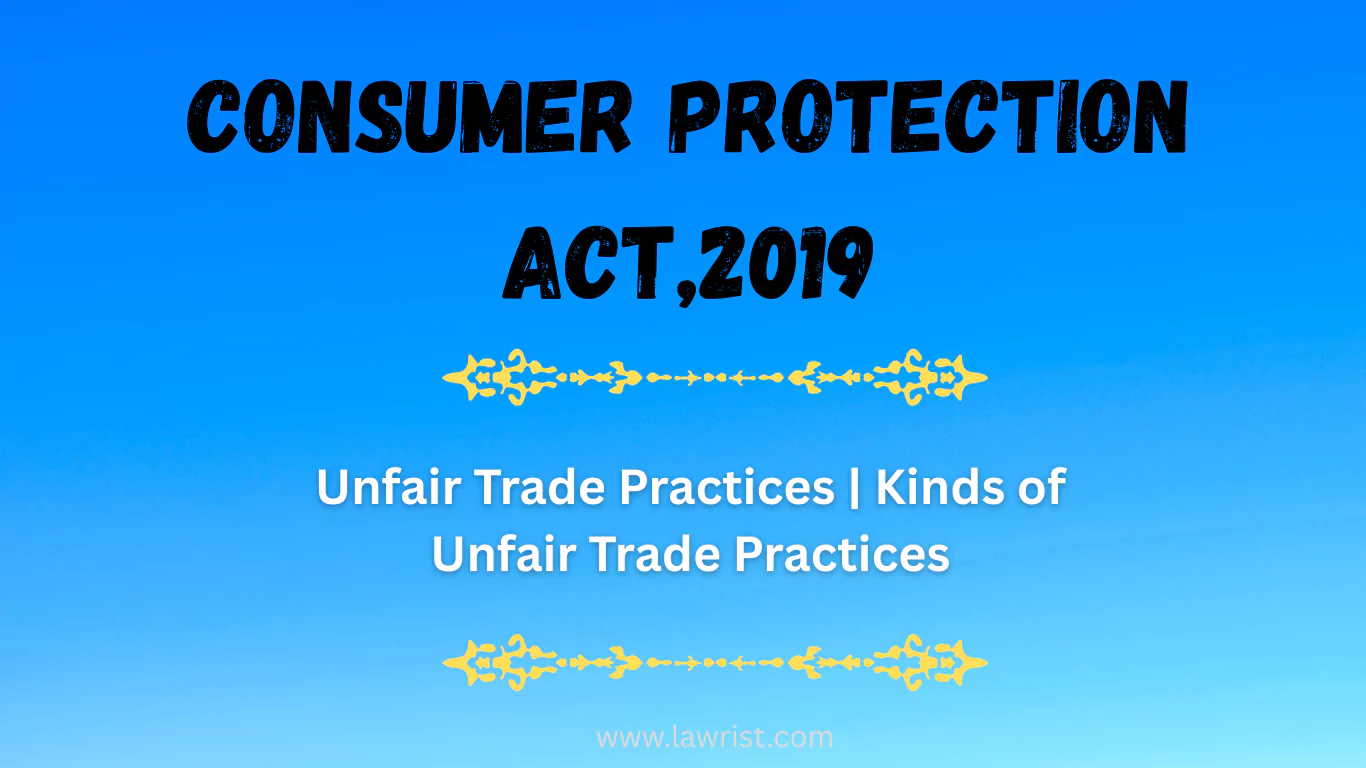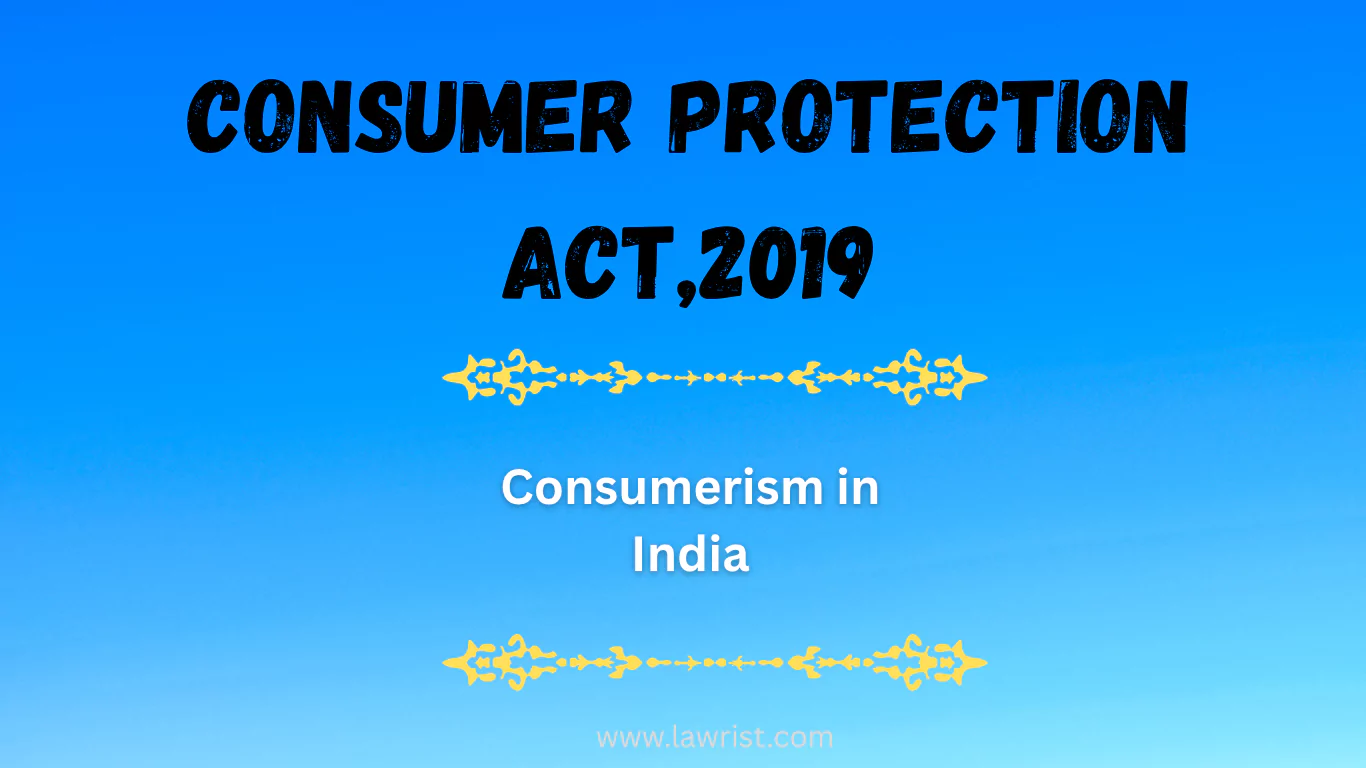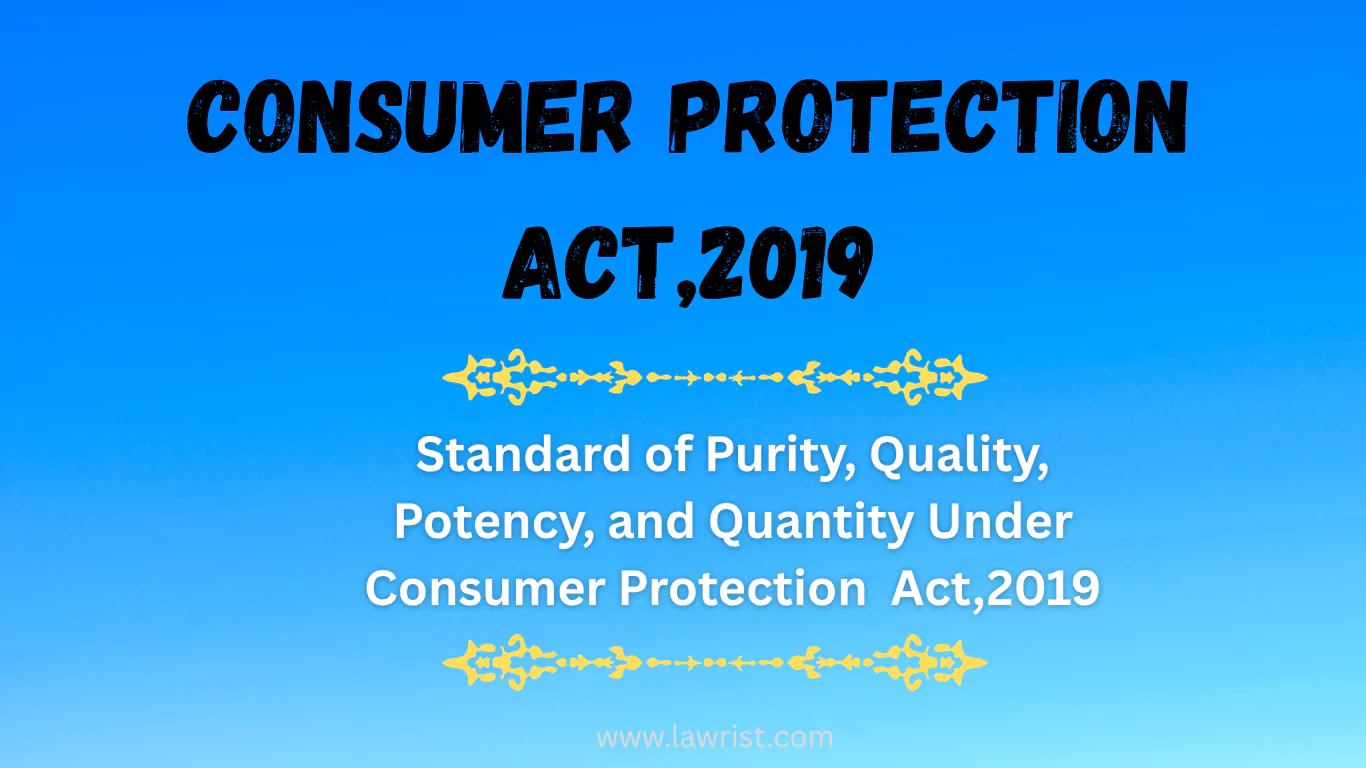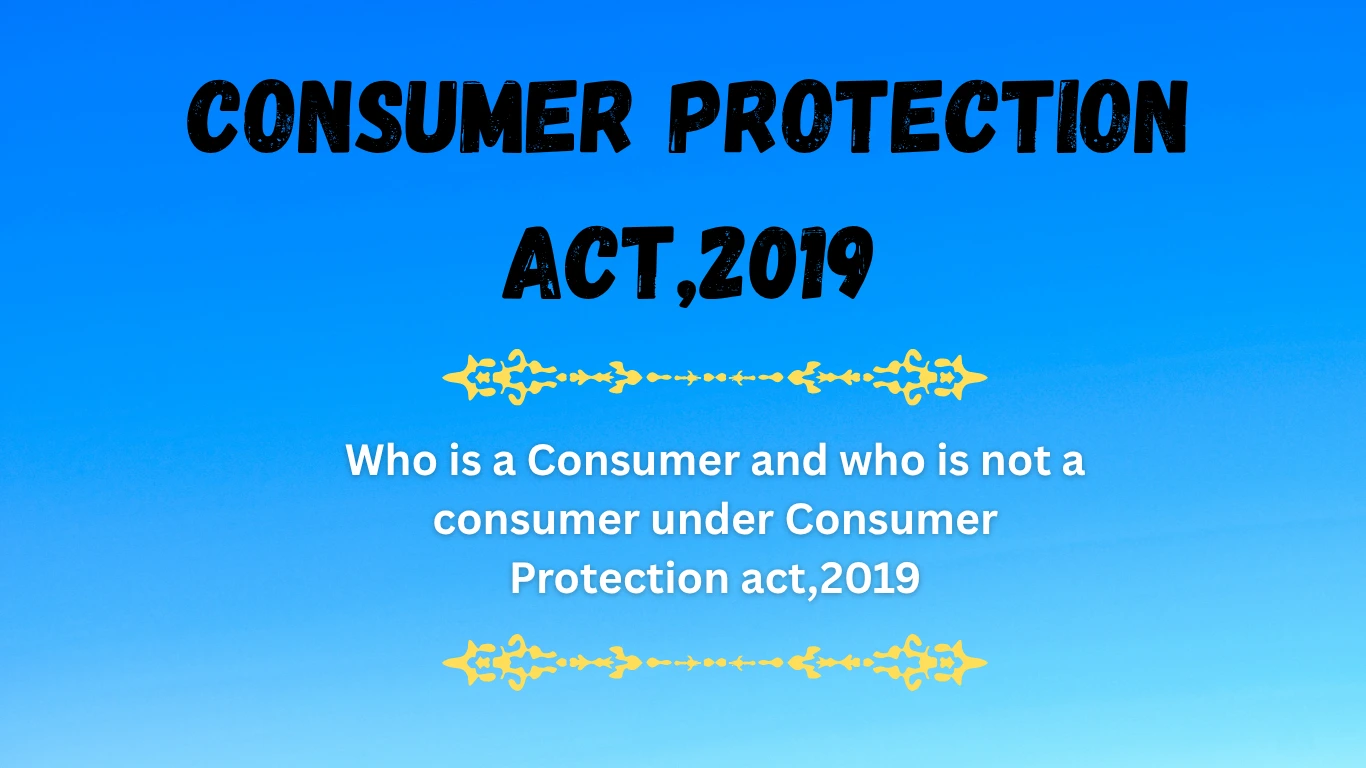Meaning of Unfair Trade Practices: -
It refers to the use of various deceptive, fraudulent, or unethical methods to obtain business. Unfair business practices include misrepresentation, false advertising, tide selling, deceptive pricing and non-compliance with manufacturing standards. Such acts are considered unlawful by statute through the consumer protection laws.
Unfair Trade Practices may be categorised under: -
- False representation
- Bargain price
- Non-compliance of prescribed standard
- Falsification of trademark
- Unsafe and hazardous goods
- False Representation:
The practice of making any written statement or representation which –
- Falsely suggest that goods are of a particular standard, quality, quantity, grade, composition and model.
- Falsely suggest any rebuilt, second-hand, renovated, re-conditioned, or old goods as new.
- Represents that the goods or services have sponsorship, approval, or affiliation which such goods or services do not have.
- Makes a false or misleading representation concerning the need for or usefulness of any goods or services.
- Gives to the public any warranty or guarantee of the performance, efficiency, or length of time of a product that is not based on an adequate or proper test.
- Bargain Price:
Where an advertisement is published in a newspaper, whereby goods/services are offered at a bargain price, when in fact there is no intention that the same may be offered at that price for a reasonable period of time. It shall amount to an unfair trade practice.
- Non-compliance of prescribed standard:
Any sale/supply of goods used by the consumer, having reason to believe that goods do not comply with the standard prescribed by some competent authority in relation to their performance, composition, content, design, packaging, as are necessary to prevent the risk of injury to the person using such goods shall amount to an unfair trade practice.
- Falsification of Trademark:
Falsely applying of a trademark is said: -
- When a person deceptively applies the falsified trademark to goods/services or any packet which contains goods.
- When a person uses that package which has a false trademark or deceptively similar trademark of the proprietor for the purpose of packaging or wrapping of goods other than the real goods of the trademark.
- Unsafe and Hazardous Product: -
The term hazardous goods have not been defined in the act. The dictionary meaning of the term is dangerous or risky. However, the term is used in context of goods only.
A person can make a complaint of he is not informed about the hazardous nature of the goods, but the same is not true in case of hazardous services. The rationale behind the provision is to ensure physical safety of the consumer. The law seeks to ensure that those responsible for bringing goods to the market, in particular supplier, importer, or retailer and the same should ensure that while in care, these goods are not rendered unsafe through improper handling or care.



